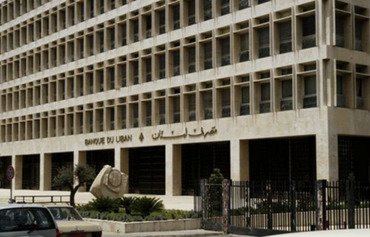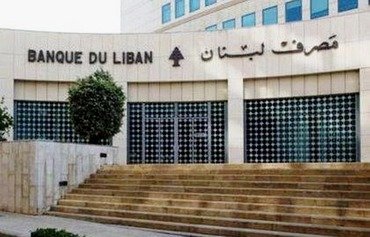Lebanese banks are committed to upholding national and international anti-money laundering and counter-terrorism financing (AML/CTF) legislation, but these efforts are undermined by the ongoing activities of Iran-backed Hizbullah, bankers and economists tell Al-Mashareq.
Hizbullah operates outside the normal banking system, leaving the group relatively unscathed from efforts by Lebanese authorities and international sanctions.
"We are open about the fact that Hizbullah’s budget, its income, its expenses, everything it eats and drinks, its weapons and rockets, come from the Islamic Republic of Iran," said Hizbullah leader Hassan Nasrallah in a June address to his supporters, adding that his group "will not be affected" by the newest round of US sanctions.
In December 2015, the US Congress passed legislation aimed at preventing Hizbullah and affiliated entities from gaining access to the international financial system.
Lebanon's Central Bank, backed by the government and economic community, has committed to adhering to its provisions, though this has not been easy, given Hizbullah's large sphere of influence in Lebanon, said former Central Bank deputy governor Ghassan Ayyash, who currently serves on the Cedrus Bank board of directors.
It is unrealistic to think the legislation can be implemented without objections and reactions, he said, "because in contrast to all countries of the world, Hizbullah is part of Lebanon's political life and has members in government".
The Iran-backed group also has a large parliamentary bloc, owing to its popular base, he said, in addition to "an arsenal of weapons that gives it considerable influence over the course of political life in Lebanon".
"Lebanon’s Central Bank was determined to implement the law so the Lebanese banking system does not lose its relationships with US banking institutions," Ayyash said. "This stance can be described as courageous, and it was taken and defended by Central Bank governor Riad Salameh."
Lebanon determined to uphold law
In May, banks in Lebanon began implementing Law No. 44 of November 2015 on AML/CFT and circulars issued by Lebanon’s Central Bank.
In June, Central Bank Governor Riad Salameh announced the closure of 100 accounts linked to Hizbullah in compliance with the US Hizbullah International Financing Prevention Act.
At the time, Salameh said his priority was to keep Lebanon on the international financial map and improve its credibility in international markets.
Lebanese banks are committed to complying with Lebanese laws and international requirements, including the application of sanctions, said Association of Banks in Lebanon president Joseph Tarabay.
The moves are designed to protect Lebanon’s interests, preserve the wealth of its citizens and the interests of both citizens and clients, he said, to guarantee the safety and continuity of transactions through the global financial system.
Obstacles to implementation
To date, economist Jassem Ajaka told Al-Mashareq, Lebanese banks "are more than 95%" in compliance with the new law, as they realise non-compliance is not an option.
However, the new law has yet to thwart "some entrepreneurial activities, a number of which are gateways to money laundering, including the apparel trade, restaurants and other professions which have yet to be automated", Ajaka said.
He called for the imposition of economic and financial automation and for the establishment of a ceiling on transactions involving payments by check or credit cards that would set maximum allowable amounts.
Ajaka also pointed out the need to develop a law "to address the issue of offshore companies that may be involved in money laundering and terrorism financing, due to the lack of legal controls over them".
The implementation of the new law is designed to "keep Lebanon within the international financial system and protect the banks and the economy", financial and economic expert Louis Hobeika told Al-Mashareq.
It has not yet succeeded in fully stopping money laundering or combating terrorism, however, because money launderers and extremist groups often operate outside the financial system, he said.
Money laundering and terrorist operations are typically financed with cash, Hobeika noted, which is often brought into the country illegally aboard private aircraft or vessels that dock in private harbours along the Lebanese coastline.

![A Lebanese man withdraws money from an automated teller machine in northern Beirut. [Nohad Topalian/Al-Mashareq]](/cnmi_am/images/2016/09/15/6186-Lebanon-bank-atm-600_384.jpg)







Will Michel Aoun succeed in preventing the export of armed Iranian militias from Lebanon to Arab countries? For many years now, the Iranian regime has been using the very week Lebanon in mobilizing and sending armed Iranian militias from Lebanon to Arab countries to destroy them, undermine their fabric and drain their economies.
Reply2 Comment(s)
The end of the armed gangs of imposter Abdul Malak Badr Adin al-Houthi, who is a worshipper of Iran, and the end of the armed gangs of thief and killer Ali Abdullah Saleh Affash al-Quti is drawing near. The great Muslim people of Yemen will not wait for long, and pursuits are underway for al-Houthi and Affash al-Quti gangs in Serwah, Nahem, Ta'iz and other cities and villages in our beloved Yemen, and the beloved Arab south.
Reply2 Comment(s)